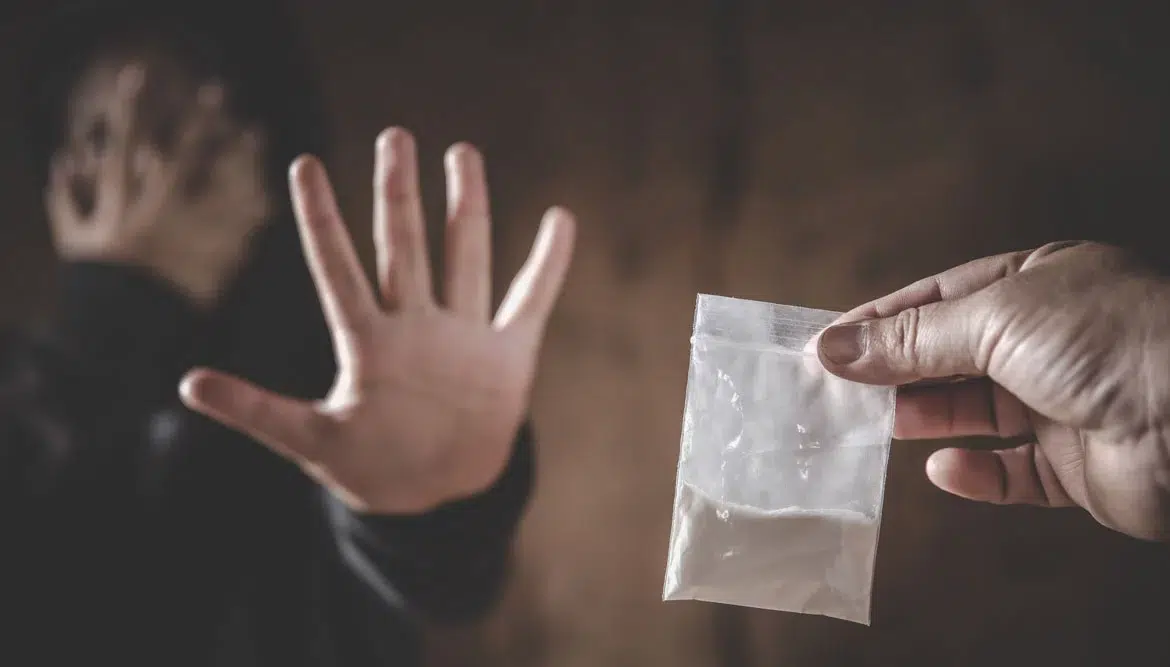Programs for Recovery at a Heroin Rehab Center
Table of Contents
Are you in the depths of a heroin addiction? Feeling trapped in this insidious addiction can make you feel hopeless. Heroin can create such a grip on someone that it can feel impossible to escape. More people than ever are now experiencing heroin addiction.
There is always a way out, though. Even people who have had the most severe and long-lasting heroin addictions can find help. In this article, we tell you everything you need to know about the most effective solution, heroin rehab.
Keep reading to find out about effective methods of recovery from heroin and opiates, and the programs we have to offer at Emerald Isle Health & Recovery!
Get Help For Heroin Addiction – Call Now!
What does heroin addiction treatment involve?
Heroin addiction treatment centers provide compassionate, professional care for individuals struggling with heroin use. Treatment centers typically use an evidence-based approach that includes individual and group therapy, medications, and other support services to help the person recover from their addiction.
The main goal of a heroin addiction treatment center is to provide comprehensive care that helps individuals manage their addiction and live their life free from heroin abuse. Treatment centers focus on helping the individual understand their addiction, prepare for recovery, and develop the skills needed to lead a healthy and productive life.
At a heroin addiction treatment center, individuals can expect to receive care that is tailored to meet their unique needs. This may include medical detoxification, individual and group counseling, relapse prevention therapy, medication-assisted treatment (MAT), and other support services.
Heroin addiction detox
Medical detox is often the first step in heroin addiction treatment, as it helps individuals safely transition off of heroin use and address uncomfortable withdrawal symptoms.
Counseling sessions
Individual counseling sessions will help individuals identify the underlying causes of their addiction, develop strategies for overcoming obstacles, and work on building a strong recovery foundation. Group therapy is also an integral part of heroin addiction treatment, as it helps individuals learn from the experiences of their peers, build a sense of community, and practice new coping skills.
Medication-assisted treatment
Medication assisted treatment (MAT) is a type of therapy used to treat heroin withdrawal and addiction. MAT involves the use of medications that work together with counseling and other behavioral therapies to reduce opioid cravings, decrease symptoms associated with opioid withdrawal, and help patients maintain abstinence. The three main types of drugs used in MAT are methadone, buprenorphine, and naltrexone.
24 Hour Heroin Addiction Hotline
Methadone
Methadone is an opioid that works by blocking the effects of drugs like heroin and alcohol for up to 24 hours. It helps reduce cravings and withdrawal symptoms, allowing people with a heroin addiction to focus on their recovery without being overwhelmed by physical discomfort. Methadone is administered as a liquid syrup or in pill form every day and can be taken at home or at a methadone clinic.
Buprenorphine
Buprenorphine is another type of opioid that works by blocking the effects of drugs like heroin, but is less potent than methadone. It helps reduce cravings and withdrawal symptoms, allowing patients to focus on recovery without feeling overwhelmed by physical discomfort. Buprenorphine is typically taken in pill form or as a sublingual strip, and can be prescribed to be taken at home.
Naltrexone
Lastly, naltrexone is a non-opioid medication that works by blocking the effects of opioids like heroin, preventing them from having any effect in the body at all. It is typically taken once a day, and can be prescribed to be taken at home or in an outpatient clinic. Naltrexone helps reduce cravings, blocks the effects of opioids, and aids in relapse prevention.
Relapse prevention and aftercare planning
In addition to providing treatment services, heroin rehab also provides support and resources that individuals can take advantage of once they leave the program. This may include referrals to community resources such as job training programs, counseling services, group therapy sessions and sober living homes.
Heroin rehab centers are dedicated to helping individuals recover from their addiction and lead healthy and productive lives. With the right support and treatment services in place, individuals can conquer their heroin use and move forward with confidence.
What is Heroin withdrawal like?
Heroin withdrawal is one of the most difficult and uncomfortable experiences someone can face. Heroin is an opioid drug, derived from morphine and used as a recreational drug to produce intense feelings of pleasure and euphoria. However, as with any addictive substance, regular use often leads to physical dependence and tolerance which requires increasingly larger doses for the same effects.
When someone who has been using heroin attempts to quit, they will experience withdrawal symptoms as their body adjusts and adapts to functioning without the drug.
Physical symptoms of Opiate Withdrawal
Common physical heroin withdrawal symptoms include:
Severe muscle cramps
Severe muscle aches are one of the most common physical heroin withdrawal symptoms. These cramps can be both widespread and localized, ranging from entire body spasms to intense cramping in the limbs and stomach.
Sweating
Along with muscle aches, sweating is another commonly experienced symptom. Sweating may be accompanied by chills due to fluctuations in body temperature.
Increased tearing of the eyes
Heroin withdrawal can cause increased tear duct production, leading to excessive tears and a runny nose. This is often accompanied by a stuffy or blocked feeling in the nasal passages.
Nausea and vomiting
Vomiting and nausea are common symptoms of heroin withdrawal, and can often be severe. This is due to the body’s reaction to the sudden lack of heroin in the system and the accompanying chemical imbalance.
Diarrhea
Diarrhea is a common symptom of heroin withdrawal and can range from mild cramping to intense abdominal pain. It may also be accompanied by nausea, vomiting, and dehydration.
Agitation
Heroin withdrawal can cause intense agitation and restlessness. This may be accompanied by insomnia due to the inability to get comfortable and relax, as well as extreme mood swings.
Chills
Chills are a common symptom of heroin withdrawal, due to fluctuations in body temperature. These chills may be accompanied by sweating and can range from mild to severe.
Increased heart rate
Heroin withdrawal often leads to an increase in heart rate, as well as increased blood pressure. This is due to the sudden lack of heroin in the system and the body’s reaction to it. Symptoms such as rapid breathing or chest pain should be monitored and reported to a doctor.
When someone begins the process of quitting heroin, they should be aware of the potential withdrawal symptoms that may arise in order to properly prepare themselves. Withdrawal from heroin can be intense and uncomfortable, but with proper medical care and professional help at heroin rehab, it can be managed safely.
Medical Detox Hotline – Immediate Help!
Psychological symptoms of the detox process
Psychological heroin withdrawal symptoms can be just as severe as the physical symptoms. These include extreme anxiety, depression, irritability, mood swings and restlessness. Other psychological effects can include cognitive deficits, such as difficulty concentrating and memory problems.
Anxiety
Heroin withdrawal can cause extreme anxiety, which may manifest as feelings of restlessness or inability to focus. This feeling of unease may also be accompanied by irritability and mood swings.
Depression
Depression is another common psychological symptom of heroin withdrawal, characterized by a loss of interest in activities or a general feeling of hopelessness. Cognitive deficits are another potential symptom, such as difficulty concentrating or memory problems.
Irritability
Heroin withdrawal can cause intense irritability and mood swings. This may manifest as feelings of impatience or anger that seem out of proportion to the situation at hand.
Restlessness
Restlessness is common during heroin withdrawal and may be accompanied by feelings of agitation.
Cognitive Deficits and Foggy Thinking
Heroin withdrawal can cause cognitive deficits such as difficulty concentrating or memory problems. These symptoms can make it difficult to think clearly and remember important information.
It is important for those experiencing heroin withdrawal to get professional help, preferably from a treatment center, in order to manage the symptoms and ensure a safe recovery. With the right support, it is possible to make it through this difficult process and live a healthy life.
What are the effects of Opioid dependence on the brain?
Heroin abuse has a drastic effect on the brain. Regular heroin use affects opioid receptors in the brain, changing the way it perceives and responds to pain. Downgraded opioid receptors leads to an increased tolerance for opioid drugs, making abusers need more and more of the drug to experience the same effects.
Downgraded opioid receptors also severely impair decision-making skills and motivation, leading to higher levels of impulsivity and lower levels of self-control. It also disrupts communication between cells in nerve pathways that control emotion and behavior, leaving addicts unable to feel pleasure naturally or regulate their emotions. As a result, they often turn back to substance abuse as a coping mechanism. All these changes can cause permanent damage over time if not treated properly.
24/7 Heroin Addiction Helpline
The importance of heroin addiction treatment
Without addiction treatment, heroin withdrawal symptoms are incredibly difficult experience to face alone. The intensity of the withdrawal symptoms will depend on the length of time a person has been using heroin, the amount and frequency of use, and their physical health prior to quitting. It is highly recommended to seek medical help from a heroin rehab for a safe and successful withdrawal from heroin addiction.
What are the Causes of substance abuse?
Drug abuse is a growing problem in our society today, and heroin addiction is one of the most common forms of it. While many people may assume that heroin use is purely recreational, there are often underlying causes that lead to heroin addiction and other forms of substance abuse.
Trauma
One common cause of drug abuse is trauma or unresolved mental health issues. People who have suffered from childhood neglect, physical or sexual abuse, bullying, or any other kind of traumatic experience may turn to drugs as an escape mechanism. The sense of comfort heroin provides can be attractive for those seeking relief from their pain and suffering. It can also be difficult for individuals with unresolved mental health issues such as depression and anxiety to find healthy ways to cope, making heroin use appear to be an attractive option.
Genetic and environmental factors
In addition, heroin addiction can also be caused by genetic and environmental factors. Those who have a family history of heroin use or drug abuse may have a predisposition to heroin addiction, as it can be passed down through generations.
The environment in which someone is raised may also influence their decision to use heroin; people living in low-income neighborhoods where heroin is easily available may view it more favorably.
Socioeconomic factors
Finally, drug abuse can also stem from socioeconomic factors. Those who come from disadvantaged backgrounds often turn to drugs as a way of coping with the lack of resources and opportunities they face on a daily basis. This can lead to heroin addiction and other forms of substance abuse over time as heroin provides an escape from their current situation.
The causes of drug abuse are complex and varied, and it is important to understand them in order to provide those suffering from heroin addiction with the best possible support and treatment. Helping individuals address the underlying issues that have caused them to turn to heroin can help them in their recovery process.
If you or a loved one is struggling with heroin addiction, please seek professional help from heroin rehab as soon as possible. There are many resources available that can aid in your journey toward sobriety. With determination, courage, and support, recovery is possible!
Differences between inpatient and outpatient heroin rehab
Are you confused about what inpatient and outpatient treatment centers involve? In this section, we explore exactly what these terms mean.
Inpatient heroin rehab
Inpatient treatment for heroin addicts is a more intensive form of rehab that requires them to stay at the center for several weeks or longer. This type of heroin addiction treatment typically involves 24-hour care and monitored access to medications, therapy sessions, and other services designed to help individuals overcome their heroin use disorder.
Inpatient programs can be extremely helpful in providing a safe, structured environment where heroin addicts can focus solely on recovery without the distractions or triggers that may lead to relapse outside of a controlled setting.
Outpatient services for heroin addiction treatment
Outpatient heroin addiction treatment programs are less intense than inpatient options and usually require participants to attend regularly scheduled counseling sessions with trained medical professionals. Unlike inpatient programs, those who participate in outpatient treatment do not need to live at the center.
As such, recovering heroin addicts are able to retain a degree of independence while recovering from their addiction in the comfort of their own homes. However, outpatient treatment may require more self-discipline and personal responsibility than an inpatient treatment program as those attending outpatient therapy must find ways to cope with triggers and cravings outside of structured sessions with medical staff.
Dual diagnosis programs for heroin users
Heroin addiction and mental health problems are closely linked. People who struggle with heroin addiction often have underlying mental health issues such as depression, anxiety, bipolar disorder, or post-traumatic stress disorder. These mental health issues can be a contributing factor to the onset of addiction.
When a person is using heroin, they may experience an initial high followed by a “crash” or intense depression. This can be difficult for someone who already struggles with mental health issues, and it can lead them to take more of the drug in an attempt to find relief. Unfortunately, this only leads to further physical and psychological dependence on heroin, increasing their risk for addiction.
Heroin addiction can also cause mental health problems. Chronic use of the drug can lead to depression, anxiety, and even psychosis. Long-term addiction can also damage relationships and lead to isolation, further exacerbating mental health problems.
Choosing a holistic heroin rehab center approach
Dual diagnosis treatment is an important part of heroin treatment. It works to help individuals identify and address the underlying psychological issues that may have contributed to their substance abuse.
This kind of treatment seeks to break down the barriers between mental health and addiction by addressing both at the same time. It helps individuals identify potential triggers for their substance use and mental health problems, as well as provides tools to develop healthier coping strategies.
By working to address both addiction and mental health issues, dual diagnosis treatment is a powerful tool for helping individuals in their recovery journey from heroin addiction.
SAMHSA (the Substance Abuse and Mental Health Services Administration)
The Substance Abuse and Mental Health Services Administration (SAMHSA) is a public health agency within the U.S. Department of Health and Human Services that promotes mental health and substance use disorder recovery, prevention, treatment, and services in order to improve behavioral health outcomes for individuals, families, and communities across the nation. SAMHSA strives to provide a comprehensive, integrated approach to behavioral health care that is both effective and easily accessible.
Emerald Isle Health & Recovery proudly supports SAMHSA and adopts evidence-based and trauma-informed treatment methodology in all our practices.
What to look for from a heroin rehab
When looking for a heroin addiction treatment center, it is important to consider the type of care that they provide. It should be an individualized program tailored to the needs of each patient, so look for centers that offer comprehensive services such as detoxification, individual and group counseling, medication-assisted treatment (MAT), relapse prevention, aftercare planning, and support groups.
In addition, it is important to make sure that the staff at the treatment center are well-qualified and have experience treating heroin abuse. Make sure they understand the complexities of the disease and that they can provide evidence-based treatments in a caring, compassionate environment. It should also be a safe space where patients feel safe to open up, share their experiences, and receive the support they need to succeed in long-term recovery.
A Record of Successful Client Outcomes
Finally, look for a heroin treatment center that has a good track record of success in helping people reach and maintain sobriety. Make sure the program is based on proven evidence-based approaches to addiction treatment such as cognitive behavioral therapy (CBT) and medication-assisted treatments like naltrexone or buprenorphine. Also, ask about their approach to relapse prevention and aftercare planning, so that you can be sure the program is offering comprehensive and supportive care.
By doing your research and selecting a heroin addiction treatment center with these criteria in mind, you will have peace of mind knowing that you are getting the best possible care for yourself or your loved one who is struggling with heroin addiction.
Emerald Isle is always happy to answer any questions you may have regarding our record of outcomes and client success stories, and warmly invite you to reach out and find out what makes us a life-changing choice of rehab!
24 Hour Addiction Treatment Help – Call Now!
An addiction treatment center built around our clients
If you have tried everything to treat your heroin addiction and are still struggling, contact Emerald Isle Health & Recovery. Our experience in treating heroin addiction is unparalleled.
Call today for a confidential consultation to find out what Emerald Isle can offer, and begin the path to a lasting recovery journey with us today!








